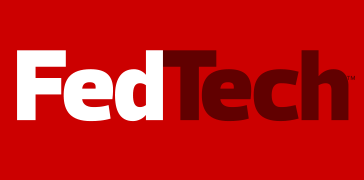sponsor content What's this?
Why Blockchain Promises More Than Bitcoin for Feds

Presented by
FedTech

Agencies may use the shared ledger technology to save time, improve efficiency and even strengthen security.
Most people associate the virtual shared ledger known as blockchain with bitcoin, a trendy digital currency built on the technology. Federal agencies, however, are thinking about blockchain applications that have nothing to do with trading money.
Those in the federal sector who monitor emerging innovations believe blockchain could revolutionize the way the government operates in nearly every arena, including health information, federal grants, personnel files, procurement and identification.
“There is a high degree of interest across the U.S. government,” says Tomicah Tillemann, who co-founded the Blockchain Trust Accelerator, a partnership of government, industry and investors trying to encourage blockchain development. “But there’s less familiarity with the technology among policymakers.”
Blockchain is an architecture that records transactions on a distributed public ledger. These transactions can be the exchange of documents, information or data.
There is no central location for these records — they reside on every computer (or “node”) engaged in the system. The decentralized structure makes it more difficult to tamper with information; if one participant in the chain alters a record, everyone else in the chain can immediately see.
The transparency of the system makes it more secure, since all actions are visible to everyone. Further, the fact that everyone on the chain can see changes and updates within seconds speeds up processes and cuts costs. Fewer intermediaries are involved in the process, and there’s less duplication of effort.
HHS, State Department Explore Blackchain Use Cases
Federal agencies are fascinated by the possibilities of improving the way they currently handle operations and paperwork, but know that this concept is still in its early phases.
“We still need a lot of information about how it’s going to be done,” says Debbie Bucci, lead IT architect in the Office of the National Coordinator for Health IT in the Department of Health and Human Services.
To get that grounding, her office issued a challenge two years ago requesting white papers on health-related blockchain proposals and received 77 submissions. The 15 winning ideas, whose creators won cash prizes, included using blockchain to verify Medicaid eligibility; to allow patients to easily transfer medical records among providers; and to make the insurance claims process more transparent.
Bucci’s office is also monitoring the progress of an Illinois pilot program that would create a blockchain-based registry to share medical credentials and license information across states or within the state.
The State Department is also showing interest. In October, its Blockchain@State working group gathered experts from nongovernmental organizations, tech incubators, universities, the private sector and global initiatives such as the World Bank and World Food Program for a forum on the topic.
“We really see that as the beginning of our exploratory phase,” says Silvana Rodriguez, an adviser in the department’s Office of Global Partnerships.
Asset tracking is a key area of interest, Rodriguez says. The Government Accountability Office audited federal spending in fiscal 2016 and issued findings in January 2017 that the government had made more than $144 billion in improper payments, mostly because of administrative errors and insufficient documentation. Blockchain would improve transparency, security and efficiency, Tillemann says.
From the State Department’s perspective, blockchain could strengthen the supply chain oversight, protecting shipments to overseas embassies and combating counterfeit goods, Rodriguez says. It could also safeguard and speed up payment of U.S. aid to foreign countries and cut the risk of election fraud.
Public trust in institutions from government to the banking system has plummeted, which is “one of the most critical problems of our time,” Tillemann says.
With blockchain, Tillemann says, people wouldn’t need to have faith in one another — only in the technology.
This content is made possible by FedTech. The editorial staff of Nextgov was not involved in its preparation.





